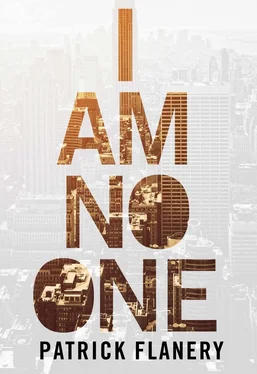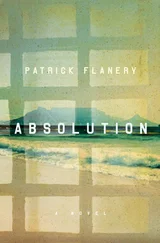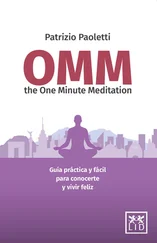‘What is it you do? What’s your job?’
‘Huh? I don’t—’
‘I’m interested in what you do for a living. You know what I do, but I have no idea what makes you get up in the morning. You’re well dressed, you move in circles that include my daughter and son-in-law and those are, if you’ll forgive me saying so, rather exclusive tiers of the social hierarchy. I’d like to know what you do.’
There was a pause, as if he was trying to think of an answer.
‘I guess I’m, you know, kind of a librarian.’
‘You don’t look like any librarian I’ve ever met.’
‘A corporate librarian. I work for a corporation. I’m in charge of the company archives and files, so you could say I’m an IT expert, but I think of myself as a librarian, or an archivist.’
‘I would have thought all those systems were digitized by now.’
As we arrived at my neighbors’ house I sensed Michael Ramsey shift in the passenger seat. For a moment we sat looking up at the black windows and I wondered if he was about to make some further and unpredictable move, if perhaps he really was not staying there and I was about to reach the end of my life.
‘Mostly they are. You’ve got instant access to everything in the company archive, for everyone, you know, provided it’s not restricted to upper management. All of it’s encrypted behind a firewall. But things still go missing, and if we lose a file or a volume it means a lot more than if your college library misplaces a copy of War and Peace . Once the files are all digitized, they’re easier to track. I can see which employee has accessed which files at what time, which pages they’ve looked at and for what duration of time. Imagine if you could do that with your students and keep track of who’s been doing the reading, see how long they spent reading — I don’t know, what do you work on?’
‘Twentieth-century German history.’
‘So imagine you assigned Anna Funder’s Stasiland —’ he said it so easily I thought he must have been looking at my syllabi, ‘—and it was a requirement for students to read it as an e-book and you had the technology in place to see not only if they had done the reading but how long each person had spent, whether they had marked up the text, what kinds of notes they had taken, whether — assuming a socially interactive reading experience for the class — they had bothered to look at the notes and comments of their fellow students and contributed to a conversation or debate about the reading before class.’
‘You’d need an army of people tracking all those digital markers. Who could manage so much data?’
‘It’s simpler than you think.’
‘Frankly, it gives me chills. Privacy is the last thing we have. Privacy with a book most of all. When I sit down and read a book I don’t want anyone else knowing how long it’s taken me to read a page, what I’ve written about it, whether I’ve skimmed a paragraph too quickly to recall its contents clearly. You’re imagining a world where even thought is a matter of public record. It’s grotesque.’ Ramsey’s lips popped with a burst of air, as if in surprise, or exasperation. ‘What, you think I’m just a dusty old-fashioned professor, a leather-sniffing bibliophile who naïvely thinks privacy still exists?’
‘It’s endearing.’
‘I wouldn’t ever want to know all that information about my students. I’d rather trust them and be disappointed. I could never police them in that way. It’s antithetical to a university environment to keep tabs like that. I want to believe in truth, Mr. Ramsey. That is, I want to believe my students will be motivated by faith in the value of truth, of being truthful, not only with me, but with themselves and with each other and with the whole world. That must sound ridiculously romantic to you.’
‘Truth may be beautiful but it lacks the artistry of lies.’
He opened the car door and I followed him up my neighbors’ driveway to their house and front porch, hanging back as if I expected him to turn on me with a gun, or knock me over the head, and I watched as he took the keys he had dangled before me in my own house, found one on the ring, fumbled with it, dropped it, reached down to the mat and picked it up again — had he made an exchange of some kind, I wondered? — slipped the key in the lock, turned it, and pushed the door open before swinging back round to smile at me, as if to say, ‘you see, Professor, I really am staying here, despite your paranoia and suspicion, I have not told an artful lie,’ although possession of a working key did not prove he was a guest of my neighbors, there being many ways to acquire a key, for he might have been a highly skilled burglar able to copy keys, or have convinced a local locksmith to let him in and produce a replacement, he was the kind of young man who could persuade an unsuspecting stranger of his right to access, insisting he was sure he had brought the keys with him from the city and perhaps even claiming the neighbors were his aunt and uncle or cousins and the local locksmith, perhaps not knowing my neighbors very well, would have looked at this young New Yorker and either believed him completely or, if he suspected some deception by Ramsey, would nonetheless have gone ahead with making the new key because he feared having to deal with a sophisticated Manhattanite in black who might make an unpleasant fuss and threaten to phone the cops if the locksmith did not do as he was asked. Nonetheless, Ramsey walked into the house, flicking on one of the dim flashlights I had given him. As I followed, I tried the first light switch I encountered, thinking it might all be a ruse, even down to the absence of power, but nothing happened, the rooms remained dark but for the faint beams we held in our hands. At the end of a hallway Ramsey paused.
‘Where do you think the fuse box would be?’
‘Either the kitchen or garage. Maybe the basement. The basement is more likely.’
‘Let’s check the kitchen and garage first,’ he said, almost as though he feared what I might do to him in the dark of the basement. ‘You don’t have a light on your phone?’
‘I left it back at my house. What about you?’
‘It’s out of charge, like I said.’
He led me into the kitchen, whose cupboards and surfaces were visible in the moonlight that came in through the window, or at least this is how I remember it, perhaps there was no moon that night but I recall being able to see enough between the dim beam of the flashlight and the glow from the windows to discern the kind of space I was in. A modest kitchen, not unlike my own, a place of wood and stone.
I aimed the flashlight round the room, squinting my eyes, though I’ve never understood why squinting should improve one’s vision since it seems to reduce the optic field and the amount of light reaching the eye itself, and I began opening cupboards, looking for a recessed hatch, I had in mind one of two kinds of circuit boxes, either large and gray and plastic and relatively new, installed in the last twenty years, or an old one with a metal cover and heavy black switches as I remember from my childhood, but after five minutes of searching we both seemed to understand this was not the place.
‘Maybe the garage.’ Ramsey opened a door that led from the kitchen down a few steps. It was an ordinary garage as such spaces go, with a few garden tools, a riding lawnmower, and a dusty Volvo I assumed must belong to the neighbors. We swept the lights over the walls and searched the shelves and cupboards clustered near the kitchen door. Again, no sign of anything resembling a fuse box or circuit breaker and having realized this was the case it was almost as though, in silence, we acknowledged the necessity of putting aside whatever tension had marked our exchanges thus far and descending to the basement, though my own mind was working its way through various scenarios, thinking about how and whether I might overpower Michael Ramsey if he thought, alone with me in a dark cellar, he could knock me out or tie me up. I entertained any number of possible schemes, imagining this was an elaborate way to confine me or even do away with me, though I could think of no logical reason why this should necessarily be so, why Michael Ramsey might hold a grudge against me.
Читать дальше












